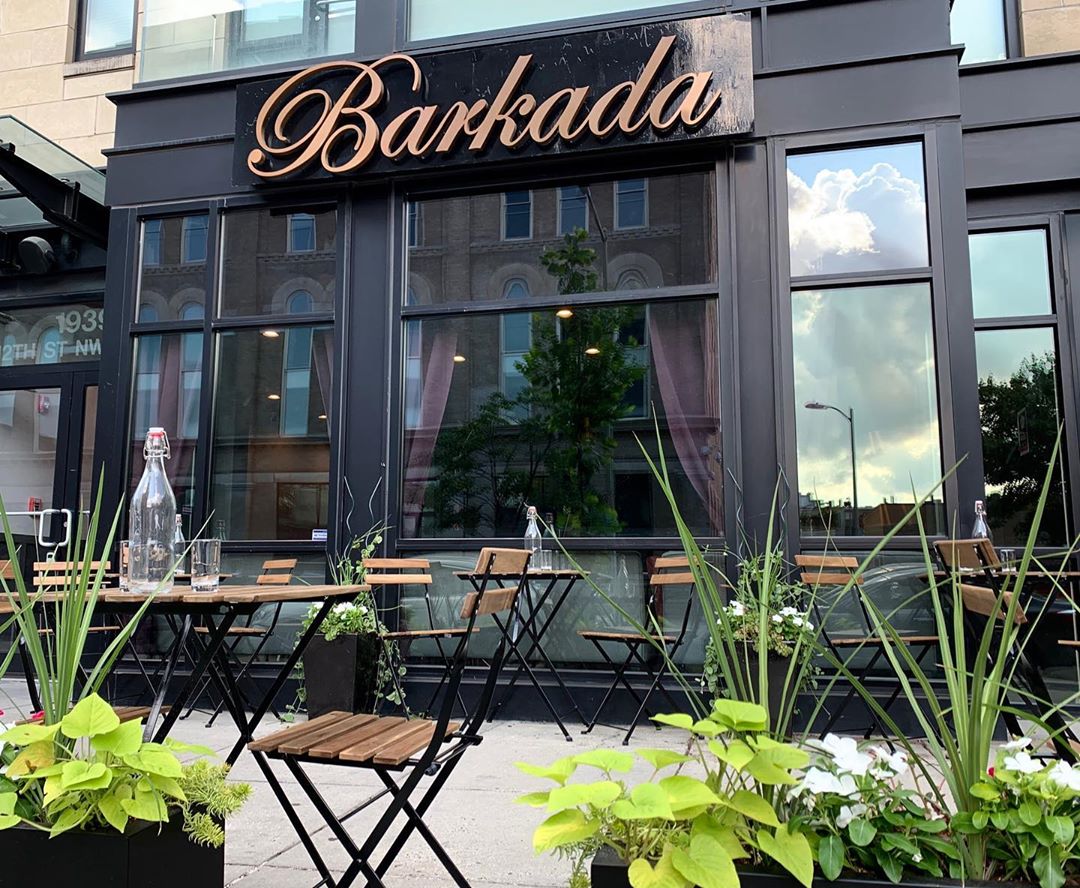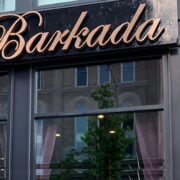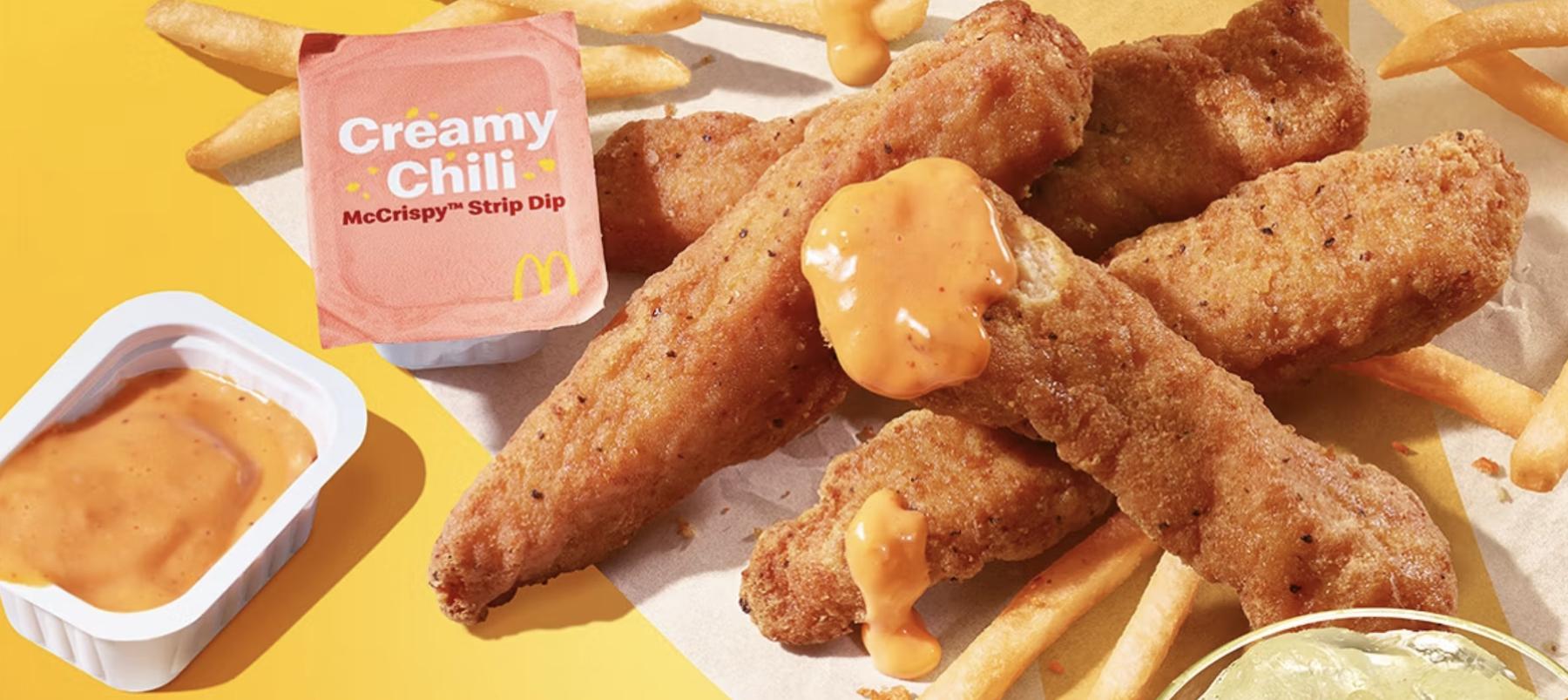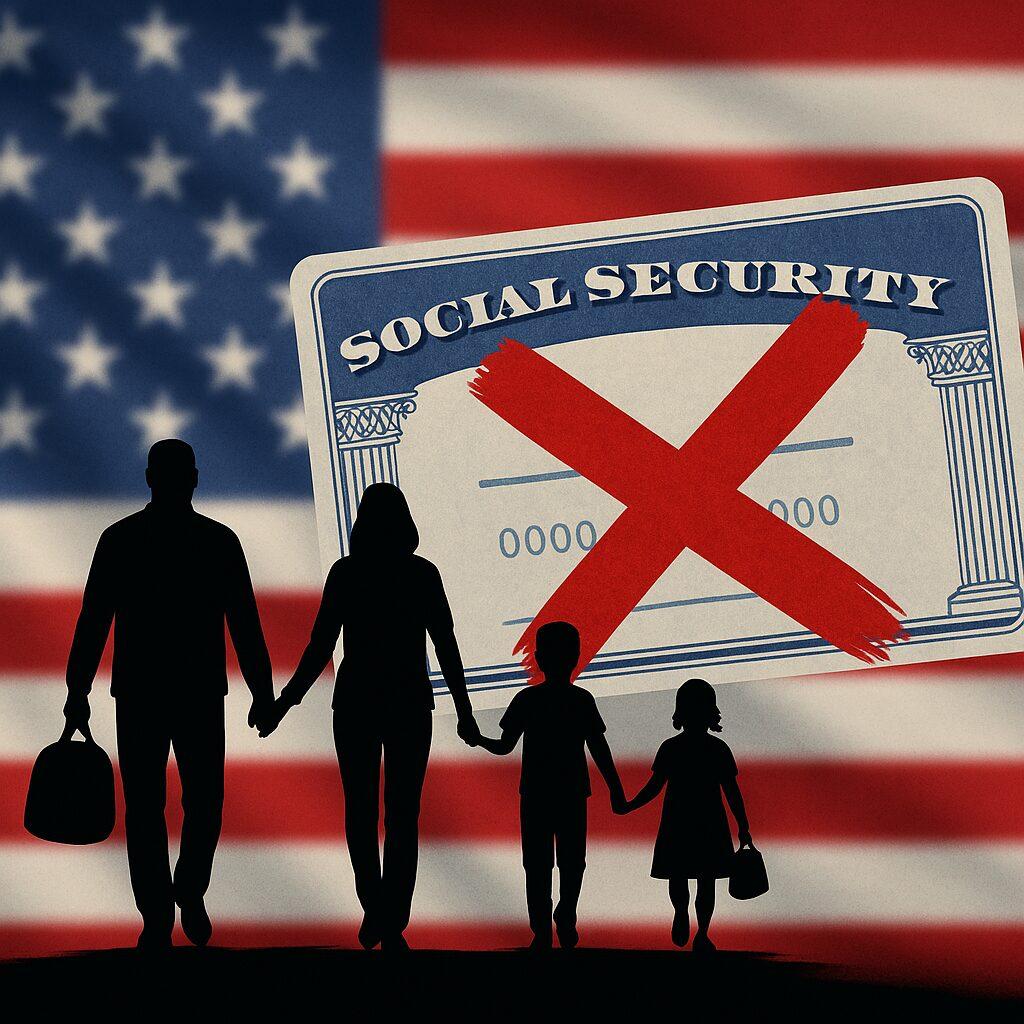
Four white men recently opened a wine bar along U Street in Washington, D.C. named “Barkada Wine Bar,” a nod to the Filipino word for a closely-knit group of friends.
The name was the only Filipino part of it; they did not announce plans to serve Filipino food or drinks nor is it an establishment owned by anyone of Filipino heritage.
Features from the Washington City Paper and Eater DC last week led to a barrage of criticism from some Filipino Americans who said that the usage of the term was cultural appropriation.
“This is problematic on so many levels. Completely ignorant and of course, a PRIVILEGED thought-process. What makes you think it’s okay to take a word from another culture when you pay no respect or homage to the culture itself?” Jessica Millete wrote in a Facebook post. “No Filipino items on your menu, no Filipino flavors incorporated, no Filipino winemakers included, not even in your decor? No support going towards a non-profit benefiting Filipino Americans or back in [the] Philippines?”
Millete also urged the owners to change the bar’s name.
“Absolutely WILD that in our current social climate, you still think this is okay. Just because you think the Asian stereotype is that we stay silent and go along our way, doesn’t mean that’s the case now,” she said.
On their website, the owners wrote: “Barkada – noun, Tagalog – a group of friends: A totally cool word that describes us: a group of friends serving crazy delicious wine, hanging out just off U Street in DC.”
In addition to the term, Krisha — a D.C. native who asked to withhold her last name for privacy reasons — pointed out another layer of how the restaurant is contributing to the gentrification of the U Street neighborhood.
“And this is all on top of contributing to the ongoing problem of gentrification in Washington, D.C. The owners have to expand outside of simply executing their business and be more mindful of the impact they create on the city they’re opening in,” she told the Asian Journal.
While some expressed their dismay, there were others who didn’t find a problem with using “barkada.”
A Change.org petition with a goal of 5,000 signatures called on the owners not to change the name and that fellow Filipinos should “give them a chance” instead of “bashing or bully[ing] them.”
One Facebook user, Maricar Tangonan, said that language is “dynamic and organic.”
“It’s often borrowed and has crossed cultural boundaries — no one owns the word ‘barkada,’” she wrote. “Not because there are no Filipino ‘pulutan’ or drinks means there is no Filipino element.”
Another Fil-Am, Mark Libatique, lamented that the debate within the community has become a “dumb, petty thing” and that it is “a non-issue [this is] on a grander scale of Fil-Am welfare.”
“Instead of being an opportunity to advance Filipino voices, this has become Filipino-vs-Fil-Am, community organizer vs non-advocate,” he said.
Bing Cardenas-Branigin, a community leader in D.C., told the Asian Journal that this conversation could have been a teaching moment about Filipino culture and cuisine.
“As a community, we could have used this as an opportunity to tell them about our food, sisig for example and our drinks made with calamansi. Their usage of Barkada could have been our leverage in order to promote our cuisine and culture more,” Cardenas-Branigin said.
Changing the name
In response to this backlash, Barkada issued an apology on its website and social media accounts.
The partners, Sebastian Zutant, Nick Guglietta, Nate Fisher, and Anthony Aligo, responded to the hundreds of comments on the bar’s social media pages asking to change their name.
Part of the statement read: “When we ventured outside of our own language to capture that sentiment, we missed the mark. We apologize to all we offended, and to our community we hope to serve. It was never our intention to appropriate or capitalize on the Filipino culture and we recognize we fell short in engaging more of the Filipino community.”
View this post on Instagram
They are also “actively looking to change our identity and our brand and engage in further dialogue” and promised to donate “proceeds from our opening to support the Filipino community as well.”
“Barkada is a beautiful world with a deep meaning of friendship. We want to honor that, and you, as we move forward,” the statement read.
“Part of the reason we did this is not because it’s our identity but we resonated with the meaning and thought behind the word,” Guglietta told Eater. “But it was a mistake.”
He added that they spent five months coming up with the name. Also according to Eater, in the course of considering Barkada, they received positive feedback from a few friends with Filipino heritage, but the owners recognize they should have done more to evaluate the decision.
Moving forward
The National Federation of Filipino American Associations (NaFFAA) Capital Region released a statement “concerned by the lack of sensitivity and awareness” of using the Barkada name.
“Barkada is derived from the Spanish word barcada, meaning ‘boatload.’ Yes, the original barkadas were boatloads of Filipino prisoners shipped away from their homes by boat, but from these trying circumstances, our ancestors formed bonds that would help them survive colonization, imprisonment, and enslavement. To water barkada down to ‘A totally cool word’—as Barkada Wine Bar’s website originally described it—strips it of its resonance as a symbol of Filipino resilience,” the group wrote.
The statement — representing Fil-Am organizations, business owners and community members in the DC Metropolitan Area — also provided recommendations to the establishment’s owners and to news outlets on how they can inclusively cover the city’s food scene.
“We urge the business owners to commit to a habit of unlearning, undoing, and unmaking in an industry that is not isolated from racism. As established restaurateurs in the area, they have influence and connections in the industry that many BIPOC do not; they have a voice that is not afforded to marginalized communities. We ask that they commit to supporting minority-owned businesses as well as be transparent in how they choose to serve the community moving forward,” it added.
For food media, the organization urged the hiring of more writers and editors of color and to give equal news coverage to BIPOC business owners who are historically underrepresented.
“It is particularly disheartening to see Barkada’s opening receive the amount of coverage that it did when Filipino business owners have been wary of giving their establishments Filipino names lest they alienate customers,” NaFFAA Capital Region said.
The Filipino Food Movement, a nonprofit organization dedicated to the advancement of Filipino culinary arts, said they’ve begun a dialogue with Barkada’s owners about what a constructive way forward could look like for the community and bar. (The owners also shared with the movement’s representatives that they reportedly had a Filipino roommate a few years ago who taught them the word barkada.)
“In many ways, this is a cautionary tale when it comes to opening food businesses, especially in the U.S. where the audience is so woke, there is no room for making mistakes. You can’t make missteps like this, especially in this day and age,” Keesa Ocampo, vice president of the Filipino Food Movement, told the Asian Journal. “You have to do your research and for your brand, marketing and development, you have to put in a lot of thought into not only how do I want this brand to look? But also, how can I be inclusive?”
The group also said it’s an opportunity to be “bridge builders” and to uplift Fil-Am chefs for possible pop-up events and Filipino wine and spirit brands that can be showcased at the bar.
“This is no longer the time to be divisive. When people try to find resonance and relevance in our food and culture, we think it’s a great thing,” Ocampo added. “Now, yes, there may be missteps, but I don’t think that we should be dissuading them from trying again and trying harder…If their heart is in the right place and if they commit to really doing this the right way, then we want them to do well because they’re now carrying a piece of our culture and a word that belongs to us.”







Let us get this right: we Filipinos appropriated barkada from Spanish.
I know I take the unpopular position that Barkada Wine Bar keep its name, but feel that the issue to be addressed is primarily of language, culture and appropriation. The Filipinos and Fil-Ams raising a hue and cry English to express themselves; live in an appropriated culture, even go by non-indigenous names; perhaps even intermarried into foreign cultures and all these are a collective part of their reality now, something that they seem not to give some rational thought to considering that cultural anthropologists, the likes of Claude Levi-Strauss, for instance, assert that language is our reality. This implies then, that the dissenting Filipinos and Fil-Ams, in their discoursing using and living within cultural elements that are English, already have appropriated an altered reality, and hence may be said to no longer have sole claims or assertions on their Filipino-ness, Filipino identity and culture which they are ironically reappropriating this time around, living with as sense of split identity/ethos, claiming whichever cultural identity it is convenient or good to use as a soapbox to spew a harangue from.
The original reaction’s (Jessica Millete) position somehow describes itself as, “If in the homefront we do it, okay lang (That’s just okay); then when “others” appropriate something from ours, “othered” and appropriated na tayo. (we Filipinos are othered.)”
While I do appreciate that there are two sides to the issue, from the perspective of cultural flux, spread and accretion, the extreme positions ignore that language undergoes loaning of words from one culture to another as a matter of cultural exchange and interaction, particularly in a more globalized context such as now. This has happened to practically every culture. English has already officially adopted “boondocks,” “Imeldific,” (and from Macquarie U, Australia) so many words like bakya, halo-halo from the Philippines as entries in an English lexicon. Barkada has also been accepted as an entry in the Oxford English dictionary. See https://www.lexico.com/definition/barkada.
Besides, our miffed reactor does not realize that we do not have exclusive claim to the word, because in reality, barkada originally comes from the Spanish, barcada (noun, barco + ada) meaning a boatload or a shipload; it also means friendship in Spanish. I believe it is not also solely or exclusively used to refer to a boatload of Filipino prisoners. See https://educalingo.com/en/dic-es/barcada or en.wiktionary.org. The item, as a wiki item is meant for popular dissemination and information, and therefore I take the definition to be a popular or common definition. I would like to also see the sources of the Fil-Am Association in so asserting the exclusivity of application to Filipino prisoners, in light of associated and functional Spanish words (also used in Filipino), embarcadero, embargo, barco, embarka (this latter from Chavacano, a Filipino language), etc, not necessarily rooted on such etymology as “a load of Filipino prisoners.”
Even the site, urban dictionary considers it a word widespread in Filipino-English usage because of its popularization by media. (I put emphasis on the shared or hyphenated relation, Filipino-English) See https://www.urbandictionary.com/define.php?term=barkada
Filipino itself is an admixture of influences from Spanish, English, Japanese and the many other vernacular languages of the nation. Nothing, maybe more especially so in language, is ever pure. If the rant requires the American proprietors to go back and confine themselves to the use of pure English, we will see in turn that if we try to sift through the “purity” of English, we will discover the same history of loan words from among the Franco (French), Teutonic (German), Anglo, Saxon, Celtic tribes as well as from the Latin, Greek, Hebrew, etc. languages, either as a matter of the words’ etymology or their being loan words.
What is furt herironic is that the Fil-Am who has entrenched herself within a culture she now appropriates as her reality, uses an appropriated language to push for a sense of cultural isolationism, alienation and othering as well, in a reverse form of cultural and linguistic imperialism, suppression of the free expression of others’ creative imagination and entrepreneurial spirit, in a world that is already a diverse, multicultural yet inclusive global village. Even by historical happenstance and an act of appropriation by her family, her name is appropriated from two different cultures. While she enforces her views on others in the name of accountability in this little tempest she has brewed in a teapot, she is guilty of the same, and does not see that her outrage is a certain show of the snowflake sensibility seen in many nowadays, as well as see how she presents herself to be a bully who enforces the closing of cultural and linguistic borders into imagined territories owned as a matter of entitlement by supposed specific groups. Nary a peep comes from them as regards the Filipinos’ appropriation of lexical gems and other nomenclature from other cultures’ languages for its many establishments. Jollibee is a coinage from English. It does not necessarily serve jollity nor bees; yet serves American (or as roots be true, German and Italian dishes– burgers and spaghetti, respectively; and what could be more American than pies, milkshakes and southern breaded fried chicken, which it also dishes out? Yet Jollibee asserts its purely Filiipino identity, without the nation taking to task the half which is Chinese of the owners’ identity. Army Navy and Yellow Cab Pizza that channel a full American vibe and cultural references are purely Filipino owned. Should we rename Pancake House? Goldilocks? Aristocrat? Red Ribbon? The list goes on interminably.
In a world where cooperation, caring, and sharing in safe ways can be more compelling than divisiveness, especially with everyone’s lives threatened by the Damocles’ sword that is COVID-19, would such selfishness as regards the use of a loan world overrule the need for the celebration of a common experience of life, a shared humanity, a sense of warmth in a virtual embracing of cultures, a valuing of what is now a precious commodity of a coming together for the sake of friendship?
For shame. If such selfishness be overblown to such a level, as this let me just say that we are waiting for Jessica and her ilk– come back home then and hide under a rock here, in the Philippines.